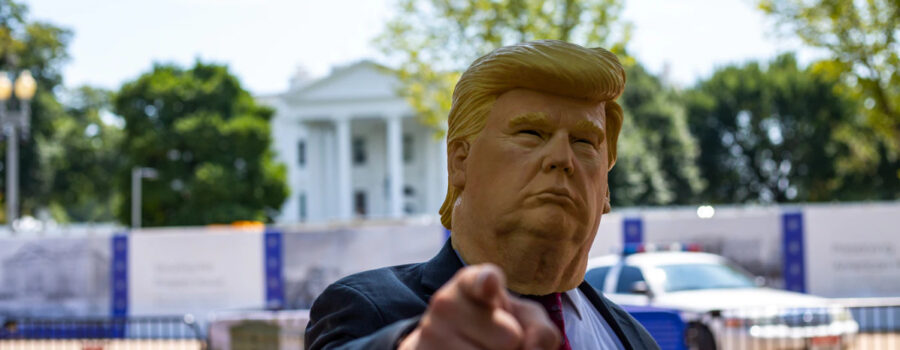The New York Times has published a series of shocking revelations about the amount of tax (or lack of it) paid by US President Donald Trump.
In the year he campaigned to become US President, Trump paid just $750 in Federal Income Taxes. In the first year of his Presidency, only $750.
In fact, the Times reported that Trump paid no income taxes in 10 of the past 15 years. Their report spoke about “chronic losses and years of tax avoidance”.
In this video, how to pay tax like Trump.
Before I get started with the tax-saving tips, a few important disclaimers.
Firstly, please don’t sue me, Mr President. The comments in this blog post (and video) as based on the allegations published by the New York Times.
Secondly, tax is complicated, even if you’re a stable genius. In this video, I talk about UK rather than US taxes, but you should always seek professional advice before making tax planning decisions.
Thirdly, there’s a big difference between tax avoidance (legal) and tax evasion (illegal). Don’t do the latter.
There are lots of legitimate ways to pay less tax. In the UK, we waste an awful lot of money each year in unnecessarily paid taxes.
A recent survey estimated that we Brits waste £12.6 billion each year on taxes we don’t need to pay.
The top three biggest wasted tax payments were for income-related tax credits, tax relief on pension contributions, and tax relief on charity contributions.
To stop wasting tax, you need to take advantage of available tax allowances and reliefs.
When it comes to income tax, making pension contributions is an effective way to reduce your tax bill. Basic rate income tax is added to your pension contribution, and then the difference between the basic and higher or additional rate can be claimed back through self-assessment.
You can also take advantage of a civil partner or spouse who earns less than you, to transfer income-generating assets into his or her ownership, and therefore pay less tax.
This strategy of transferring assets to a civil partner or tax is good for reducing capital gains tax too, as each partner receives an annual allowance.
We always urge our clients to keep good records, which makes claiming tax reliefs much easier.
Good record keeping is especially important when it comes to reducing inheritance tax, where an accurate record of gifts is invaluable for your loved ones when you die.
To get to Trump levels of tax savings, if that’s even possible without breaking several laws, you ideally need to start a business.
Business owners can claim expenses, assuming they are incurred wholly and exclusively for the purposes of the business.
It’s also possible to offset losses against trading profits, which appears to be central to Trump’s tax planning strategy.
Businesses can claim capital allowances on certain purchases, including electric vehicles which currently attract a 100% writing down allowance in the first year.
Pension contributions made by businesses also reduce taxable profits.
Business owners can claim business asset disposal relief (often called entrepreneurs’ relief) on the eventual sale of their shares, assuming certain conditions are met.
And one of the big tax incentives which comes with business ownership is the ability to pay remuneration as dividends instead of salary, with dividends usually charged at a lower rate of income tax.
In conclusion, if you want to pay tax like Trump, and you want to do it legally and ethically, you should seek professional advice.
Speak to a Chartered Accountant and a Chartered Financial Planner, to address tax planning strategies within the context of your long-term Financial Plan.
Most important, avoid tax avoidance schemes which are often expensive and prone to failure. Stick to tried and tested tax planning strategies which are readily accepted by the taxman.

